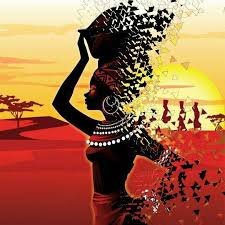.jpeg)
I read things fall apart when I was young, and when I was a little older; in none of those times did I grasp the depth of the book as I did when I read it this year.
I saw the past and present African society in Umuofia.
I was fascinated about the fact that Umuofia had no kings, but people followed the rules. This showed that our society might have a different approach to things, but it really did work for us. A wife from Umuofia is murdered and it is quietly resolved by the offering of a virgin to the widowed spouse through the elders. Laws forbidding clansmen from killing fellow clansmen kept people in check.
Then comes the shortcomings of our society. A boy is also offered — a boy who is killed. Okonkwo in the killing of Ikemefuna represented to me Africa, who'd rather kill and ostracize their fellows to just appear strong to others — morality in the context of Africa.
Then comes the one element that has always been our undoing — resistance to change. Umuofia held on tightly to traditions like killing of twins, the osu system ( slavery to deities ) and so on. So when the new religion came and it accepted all, these wronged bunch quickly turned to it. Nneka, a woman who had lost several twins, was the first woman convert.
This is the problem of Africa today, refusing to acknowledge that the world has since changed. Thus, some of our ways of thinking doing things and 'moral values' should be modified to suit the times. While it is a good virtue to be principled, our fathers say "when the rhythm of every drum changes, the dancers must change their dancing steps".
The rhythm of the drums have changed, yet we refuse to change our dance steps; just like Umuofia's clan was broken, our home has broken.

I have already voted for you.
Can I invite you to pay attention to my new project? Resteem and upvote my first post can participate in a 100 STEEM lottery.
Steem Express online | Resteem and upvote can participate in a 100 STEEM lottery